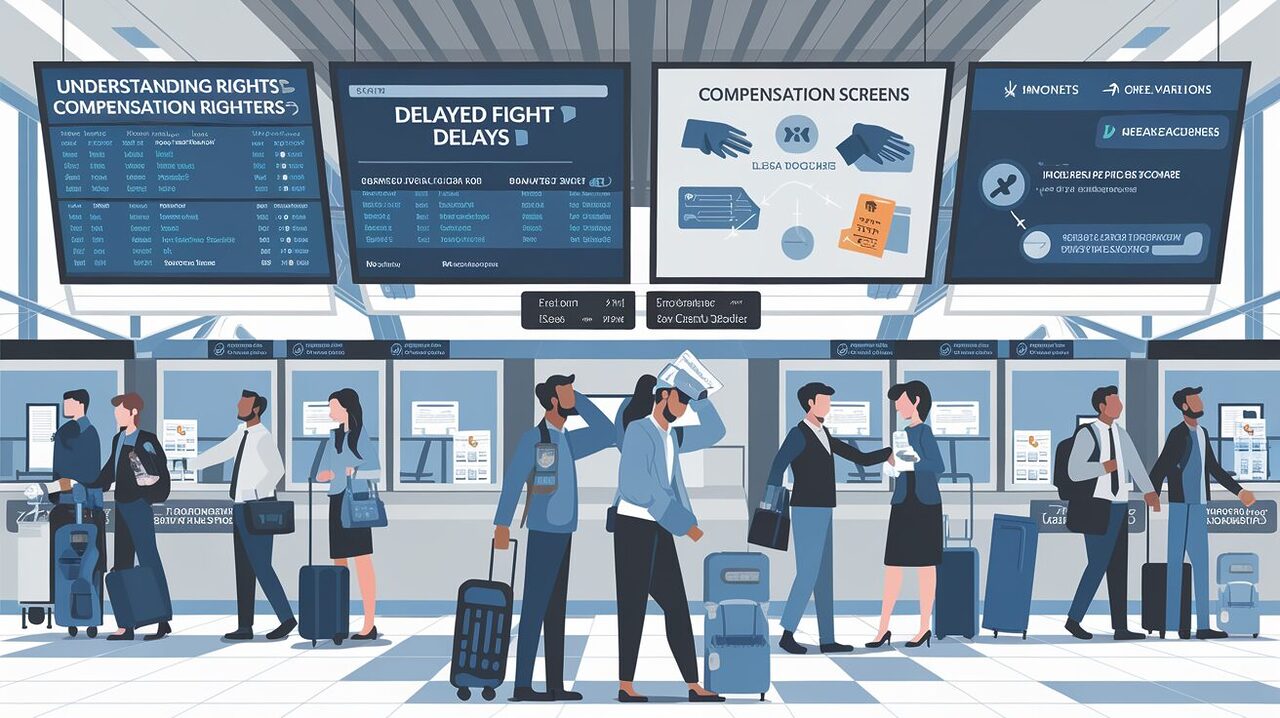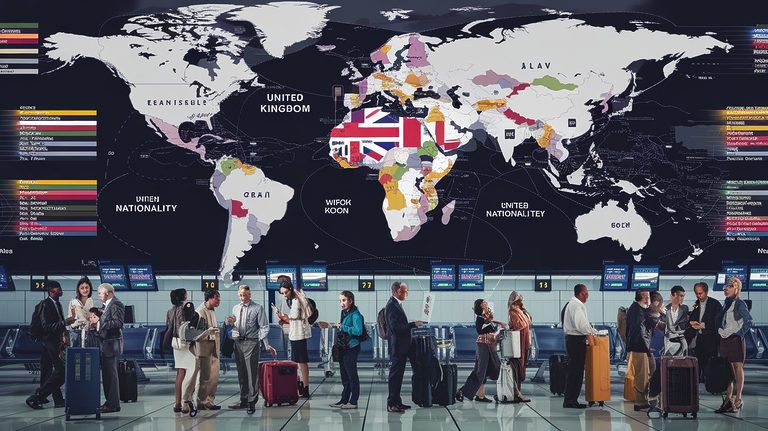Traveling by air can be an exhilarating experience, but it often comes with its share of challenges, particularly when it comes to flight delays. For many passengers, understanding their rights regarding compensation is crucial to navigating these unexpected situations. While regulations aim to protect travelers, the process can often be complicated and not well-known. This article will delve into the intricacies of compensation for air travelers facing flight delays, shedding light on their rights and the potential impacts of recent regulatory changes.
Flight delays can significantly disrupt travel plans, causing stress and inconvenience for passengers. In the context of European travel, understanding the rights and compensation available for such delays is crucial for air travelers. This article delves into the specifics of compensation for flight delays, outlining current regulations, proposed reforms, and tips for passengers to navigate this often intricate terrain.
Current Regulations for Flight Delays
The current framework protecting air travelers in Europe is based on European regulation 261/2004, which has been in effect for over two decades. This regulation provides a safety net for travelers departing from any EU country, ensuring that they are eligible for compensation in the event of cancellations or significant delays.
Under this regulation, passengers facing delays of more than three hours are entitled to compensation based on the distance of their flight. Compensation amounts are categorized as follows:
- €250 for flights under 1,500 kilometers
- €400 for flights between 1,500 and 3,500 kilometers
- €600 for flights exceeding 3,500 kilometers
Importantly, this compensation is meant to be granted automatically, alleviating the need for passengers to initiate the claim process actively. Despite this protection, many travelers remain unaware of their rights, resulting in only a fraction receiving due compensation.
The Challenge of Awareness and Accessibility
Statistical data reveals a concerning trend regarding passenger awareness. Approximately 50% of travelers in France and 33% across Europe do not comprehend their entitlements under existing regulations. As a result, many consumers miss out on compensation during difficult travel situations. For example, the previous year recorded over 7 million minutes of delay among those departing from France, with 20% of flights facing delays of more than 15 minutes.
Proposed Revisions to Compensation Regulations
As travel resumes, discussions among regulatory bodies regarding potential amendments to passenger rights regulations are gaining momentum. Proposed changes could redefine compensation thresholds and procedures, primarily influenced by lobbying from the airline industry.
Under the new proposal, the criteria for receiving compensation may shift, raising the delay threshold from three hours to five hours for flights under 3,500 kilometers. If enacted, these changes could exclude a substantial portion of passengers from eligibility, as many delays fall within the two to four-hour range.
Implications for Passengers
Consumer advocacy groups have voiced their concerns regarding these proposed revisions, asserting that up to 85% of currently eligible passengers could lose their compensation rights. The revisions suggest a regression in consumer protections, with potential ramifications on travelers’ confidence in air travel.
Additionally, the reforms indicate an increased demand for passengers to proactively claim compensation, partnering with the imposition of new deadlines that could further complicate the claims process.
Making Sense of Baggage Regulations
The revised regulations are not limited to compensation but also encompass baggage policies. Adjustments include requirements for airlines to allow carry-on luggage fitting under the seat without charge. However, skepticism regarding the efficacy of these adjustments arises since many airlines already offer this service.
The Controversy Surrounding Cabin Baggage Fees
Notably, the issue of cabin baggage fees has emerged as a contentious topic, with numerous complaints lodged against low-cost airlines for such charges. These fees, amounting to significant revenue for carriers—over €10 billion in Europe—have not escaped scrutiny, leading to calls for legislative clarification on what constitutes illegal practices in this context.
Future of Passenger Rights
The proposed regulations are set to undergo a legislative process that includes evaluation by the European Parliament and discussions among member states. If ratified, the changes could take effect in the fall of 2025 or early 2026, a timeline that emphasizes the urgency for travelers to stay informed and prepared regarding their rights as air passengers.
Compensation Criteria
- Distance determines compensation amount.
- 250 euros for flights
- 400 euros for flights 1,500 – 3,500 km.
- 600 euros for flights > 3,500 km.
- Delay duration influences eligibility.
- Compensation applies after 3 hours of delay.
Potential Changes
- Extended delay threshold, from 3 to 5 hours.
- Revised compensation amounts could apply.
- Higher threshold may cut compensation for 75% of delays.
- Specific definitions for extraordinary circumstances needed.
- Proactive consumer claims process within 6 months.
As air travel becomes more prevalent, understanding compensation rights for flight delays is crucial for travelers. Under the current European regulation 261/2004, passengers departing from an EU country are entitled to compensation for flight cancellations or delays exceeding 3 hours. Compensation varies based on flight distance: €250 for flights under 1,500 kilometers, €400 for those between 1,500 and 3,500 kilometers, and €600 for flights over 3,500 kilometers. However, proposed revisions could raise the compensation thresholds and extend delay periods, potentially excluding many passengers from their rights. Consumer associations warn that these changes could significantly diminish protections, affecting up to 85% of travelers currently eligible for compensation.

Hello! I’m Elisa, a 45-year-old travel companion with a passion for exploring new places and cultures. With years of travel experience under my belt, I thrive on creating memorable journeys for my clients. Let’s embark on an adventure together!





